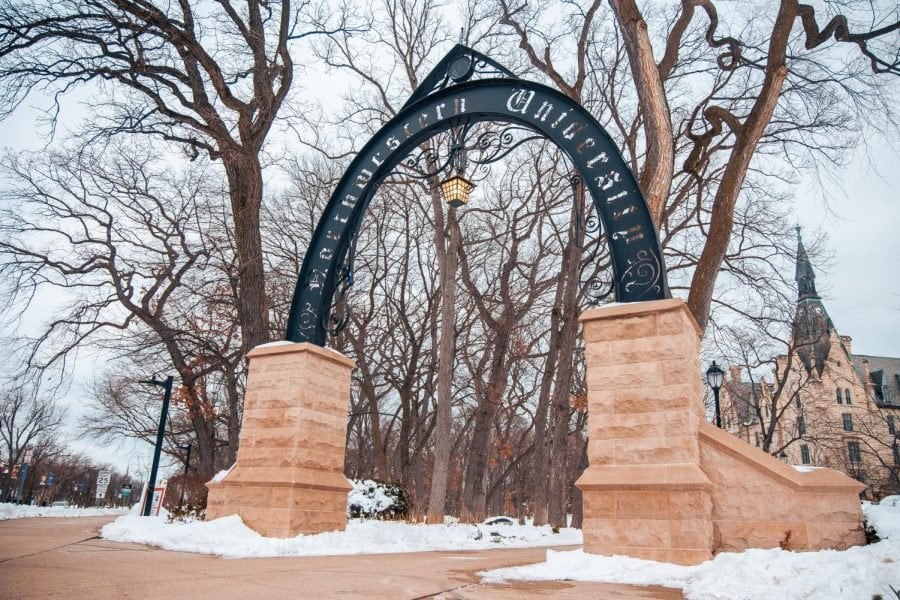Research study with NU professor finds inconsistency in decline in social isolation since introduction of vaccines
Daily file photo by Kelsey Carroll
The Weber Arch. A research study with a NU professor found social isolation in the U.S. has been declining over the last 15 months.
July 14, 2021
A research study found that social isolation has begun to decline since the introduction of vaccines, according to a Friday news release.
A national survey project by The COVID States Project — a university consortium including Northwestern, Northeastern, Harvard and Rutgers researchers — surveyed more than 185,000 individuals from all 50 states in 12 separate intervals. The study found that while social isolation has begun to decline in the last 15 months since the onset of the pandemic, unemployed and lower income families still continue to struggle.
“The data make clear that the effects of the pandemic are far from over and continue to be endured more by those with fewer resources,” James Druckman, one of the researchers in the project and associate director of the Institute for Policy Research at Northwestern, said in the release.
The results of the research found a faster decrease in isolation among religious and older Americans. The study also found that for respondents earning $25,000 a year or less, the degree of social isolation did not improve between the first waves of the pandemic and June 2021. Meanwhile, those with more resources are feeling less isolated, and, thus, more productive.
“The fear is this could exacerbate inequalities further,” Druckman said. “It makes the necessity of post-pandemic assistance clear.”
Email: rebeccaaizin2023@u.northwestern.edu
Twitter: @rebecca_aizin
Related stories:
— Northwestern researchers develop first transient pacemaker that disappears when no longer needed



